Just In
- 21 min ago

- 49 min ago

- 4 hrs ago

- 8 hrs ago

Don't Miss
- Movies
 Maidaan OTT Release Date, Platform: When Will Ajay Devgn Film Premiere On Amazon Prime Video, Zee5?
Maidaan OTT Release Date, Platform: When Will Ajay Devgn Film Premiere On Amazon Prime Video, Zee5? - Finance
 150% Gains In 12 Months: This Multibagger Telecom Stock Hits 52-Week High; IIFL Finance Recommends BUY!
150% Gains In 12 Months: This Multibagger Telecom Stock Hits 52-Week High; IIFL Finance Recommends BUY! - Technology
 Snapchat Is Adding Watermark to AI-Generated Images for Transparency
Snapchat Is Adding Watermark to AI-Generated Images for Transparency - Education
 Who is Swati Sharma? UPSC IAS 2023 Topper, AIR 17
Who is Swati Sharma? UPSC IAS 2023 Topper, AIR 17 - Sports
 Hardik Pandya bystander as Akash Madhwal takes input from Rohit Sharma before bowling final over vs Punjab
Hardik Pandya bystander as Akash Madhwal takes input from Rohit Sharma before bowling final over vs Punjab - Automobiles
 Sany India Introduces SKT105E: An Electric Dump Truck
Sany India Introduces SKT105E: An Electric Dump Truck - News
 Bengaluru Park Tragedy: Mother Avenges Daughter's Killer After He Stabs Her To Death
Bengaluru Park Tragedy: Mother Avenges Daughter's Killer After He Stabs Her To Death - Travel
Telangana's Waterfall: A Serene Escape Into Nature's Marvels
World Patient Safety Day 2020: Things Patients MUST Do After COVID-19 Recovery
World Patient Safety Day is observed on 17 September every year. Established by the 72nd World Health Assembly in May 2019, the day is seen as 'global action on patient safety.' World Patient Safety Day aims to raise awareness on the importance of global understanding of patient safety. The objectives of the day are, to:
- increase public engagement in the safety of health care,
- promote global actions to enhance patient safety,
- and reduce patient harm.
Amidst the COVID-19 pandemic, the need to ensure patient safety has indeed elevated. World Patient Safety Day 2020 theme is 'Health Worker Safety: A Priority for Patient Safety.' The COVID-19 pandemic has been hard on the world, but more so for health workers due to the challenges and risks such as violence, stigma, infections, psychological and emotional disturbances, illness and even death.
The slogan for World Patient Safety Day 2020 is 'Safe health workers, Safe patients'. The objectives of World Patient Safety Day 2020 are as follows:
- Raise global awareness on the importance of health worker safety and its connection to patient safety.
- Engage multiple stakeholders and adopt strategies that can improve the safety of health workers and patients.
- Implement urgent and sustainable actions by all stakeholders that not only recognises but also invests in the safety of health workers, as a priority for patient safety.
- Provide due recognition of health workers' dedication and hard work, particularly amid the current fight against COVID-19.
In the event of the World Patient Day 2020, we have gathered a list of things every individual who has recovered from COVID-19 must do.
---
Since its advent in December 2019, the COVID-19 pandemic has caused 939,289 deaths, affecting over 29,734,175 people. All around the globe, scientists and health experts are ardently working towards providing a deeper understanding of the nature of the novel coronavirus, informing the public of its development, mutations, etc., hence creating further awareness on the on-going issue.

COVID-19 can affect anyone, causing symptoms ranging from mild to very severe, where some people may be more likely to have severe illness than others because they have characteristics or medical conditions that increase their risk. People of any age with certain underlying medical conditions such as cancer, COPD, chronic kidney disease, type 2 diabetes, obesity, etc. are at increased risk [1].
The best way to protect yourself and to help reduce the spread of the virus that causes COVID-19 is to limit your interactions with other people as much as possible and taking the necessary precautions such as using a mask, social distancing and sanitizing to prevent getting COVID-19 when you do interact with others.


Most people recover from the COVID-19 infection, where the statistics show that the rate of recovery is higher than that of the deaths. When a person gets affected by the COVID-19 virus, it results in respiratory illnesses, so the lungs are usually affected first [2]. Early symptoms of the coronavirus infection include fever, cough, and shortness of breath. Still, damage can also occur in other parts of the body, especially during serious illness [3][4].

COVID-19 And The Road To Recovery
Reports
and
health
experts
point
out
that
the
vast
majority
of
people
who
catch
COVID-19
will
make
a
complete
recovery.
And
this
brings
forth
a
sense
of
uncertainty,
with
the
‘new
normal' and
several
questions
looming
in
your
mind,
such
as,
"How
long
will
I
be
contagious?"
"Should
I
be
worried
about
these
lingering
symptoms?"
"Does
this
mean
I
don't
have
to
wear
a
mask
anymore?"
and
more.
While
on
an
average,
a
COVID-19
patient
usually
recovers
in
three
weeks,
studies
have
pointed
out
that
people
may
suffer
from
kidney,
lungs,
and
heart
ailments
post-recovery
[5].
Some
of
the
other
possible
long-term
impacts
of
COVID-19
include
neurological
conditions
and
mental
health
issues
[6].

According to the Centers for Disease Control and Prevention (CDC), those with COVID-19 who are considered recovered when [7];
- they have no fever for at least 72 hours without medication,
- improvement in other symptoms, like cough or shortness of breath, and
- a period of at least seven days has passed since symptoms first appeared.
We have created a list of things or the ways through which you can help yourself in the journey towards COVID-19 recovery.
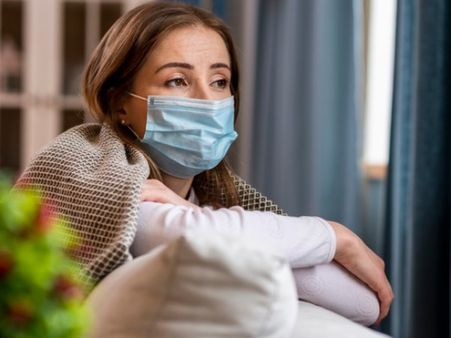
1. Take It Easy
Firstly, remember to give yourself some time. Immediately bouncing back to your regular routines and practices as soon as you get home is not practical, and honestly, it does not work that way. Give yourself some time to slowly adjust to your old routine, taking one day at a time.

2. Remember, You Are Not Immune To The Virus
As studies point out, with some illnesses, you can be immune to reinfection for some period of time after your recovery [8]. However, as reports suggest, this is not the case with COVID-19. Health experts point out that COVID-19 immunity is most likely temporary. Therefore, continue wearing face masks in public places and practise social distancing [9].
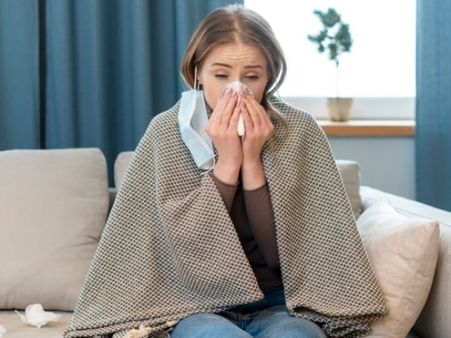
3. Pay Attention To Any Warning Signs/Symptoms
COVID-19 infections come with a long list of symptoms, the most common being fever, dry cough and shortness of breath. Pay attention to any warning signs such as a nagging headache or even a bout of breathlessness, as these could be an indication that our body has not recovered completely [10].
Note: Inform your doctor immediately if any such symptoms appear, post-recovery.
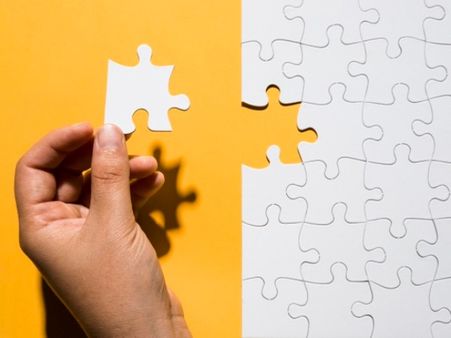
4. Try Memory Exercises
Trying out puzzles and other memory exercises can help you freshen up your memory gradually. Spend 1 to 2 hours daily for puzzles, memory games and activities to boost your brain. There is no need to rush and take it slow [11].
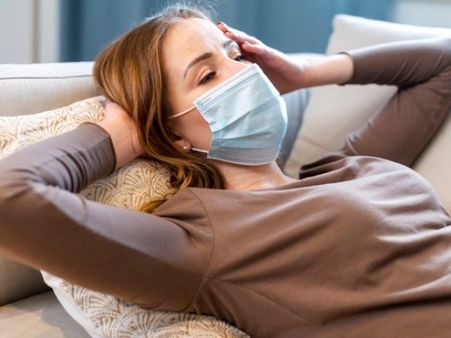
5. Save Your Energy
Recovery from any disease is not an easy one, and one that is severe, like COVID-19 will not be quick. Health experts advise that you should preserve your energy as much as possible and postpone tasks that require physical labour [12].

6. Revise Your Medications
If you have any chronic underlying health conditions and have been taking medications, health experts assert that it is essential to monitor your symptoms closely such as checking blood pressure, sugar levels etc.
Note: Consult your healthcare provider if the dosage needs revision.
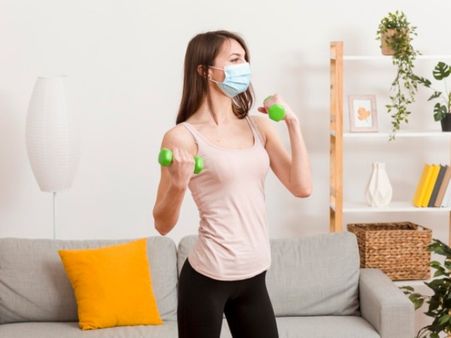
7. Exercise Regularly
Doctors say that individuals on the road to recovery should do mild exercises such as walking and positioning. Even if you are at home, walking can improve overall conditioning. Also, position your back while sitting, that is, spending long hours on your back can lead to deconditioning and other medical problems [13]. So, it is recommended to sit upright as much as possible throughout the day [14]. You can schedule your walks weekly,
Week
1:
5
minutes,
five
times
per
day
Week
2:
10
minutes,
three
times
per
day
Week
3:
15
minutes,
two
times
per
day
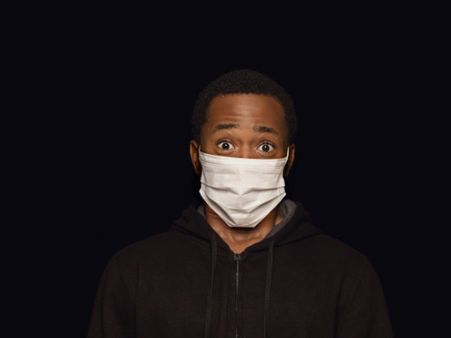
8. Take Care Of Your Mental Health
The coronavirus infection affects not only your body but also your mental health [15]. Reports indicate that those who recover from COVID-19 may be struggling mentally and even develop signs and symptoms of an acute stress reaction, or post-traumatic stress disorder (PTSD) [16].
Mental health experts suggest that in minor cases of mental health issues, one can improve their mood with a variety of mood-boosting behaviours such as;
- Communicating with your family and loved ones regularly (phones, video calls, or social media)
- Practising meditation
- Eating a healthy diet, engaging in exercise and getting good sleep
- Avoiding caffeine and alcohol
- Avoid blue light exposure (phones/laptops) for at least 1 hour before bedtime

Note: In severe cases, people may require additional support and professional help.
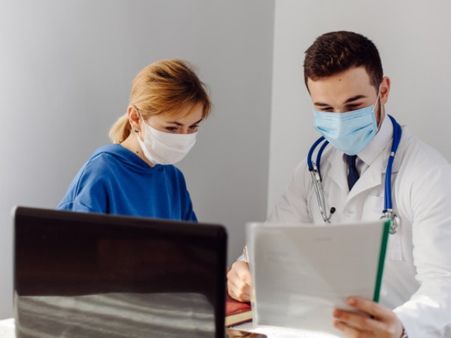
On A Final Note…
Do keep in mind that your body may not be operating at 100 per cent. It can take six weeks or longer for someone to fully recover if they were in critical condition. To facilitate active recovery from COVID-19, individuals can work on strengthening their breathing muscles and the muscles in their arms and legs. Reach out to a professional or family members for help - there is no shame in seeking help whenever you need it, be it a run to the grocery store or to cook food.
-
 disorders cureIndia May See A Covid Surge In January, Next 40 Days Crucial; Here Is How To Protect Yourself From COVID-19
disorders cureIndia May See A Covid Surge In January, Next 40 Days Crucial; Here Is How To Protect Yourself From COVID-19 -
 disorders cureCOVID Can Trigger Parkinson's Disease: Study
disorders cureCOVID Can Trigger Parkinson's Disease: Study -
 disorders cureCommon COVID Symptoms In Fully Vaccinated Individuals: What You Should Know
disorders cureCommon COVID Symptoms In Fully Vaccinated Individuals: What You Should Know -
 wellnessMild COVID Linked To Life-Threatening Blood Clots, Increased Risk Of Cardiovascular Disease; Study
wellnessMild COVID Linked To Life-Threatening Blood Clots, Increased Risk Of Cardiovascular Disease; Study -
 wellnessCOVID-19 Variants In India: New COVID Variant May Pose Threat To Elderly People
wellnessCOVID-19 Variants In India: New COVID Variant May Pose Threat To Elderly People -
 basicsCovid-19 Linked To Early Onset Of Periods: What You Need To Know
basicsCovid-19 Linked To Early Onset Of Periods: What You Need To Know -
 wellnessCOVID XBB Variants Of Omicron In India: What You Should Know
wellnessCOVID XBB Variants Of Omicron In India: What You Should Know -
 disorders cureNew Omicron Subvariant BQ.1 Detected In Maharashtra: What You Should Know
disorders cureNew Omicron Subvariant BQ.1 Detected In Maharashtra: What You Should Know -
 disorders cureOmicron BF.7 In India, Risk Of Fresh Wave During Diwali: What You Should Know
disorders cureOmicron BF.7 In India, Risk Of Fresh Wave During Diwali: What You Should Know -
 womenPriyanka Chopra Speaks On Climate Change, COVID, Poverty At The UN Sustainable Development Goals 2022 Moment
womenPriyanka Chopra Speaks On Climate Change, COVID, Poverty At The UN Sustainable Development Goals 2022 Moment -
 wellnessCoronavirus Residues Might Be Causing Long COVID: New Study
wellnessCoronavirus Residues Might Be Causing Long COVID: New Study -
 art cultureRenowned Spanish Author Javier Marias Passes Away Due To Lung Infection Post COVID-19
art cultureRenowned Spanish Author Javier Marias Passes Away Due To Lung Infection Post COVID-19


 Click it and Unblock the Notifications
Click it and Unblock the Notifications




